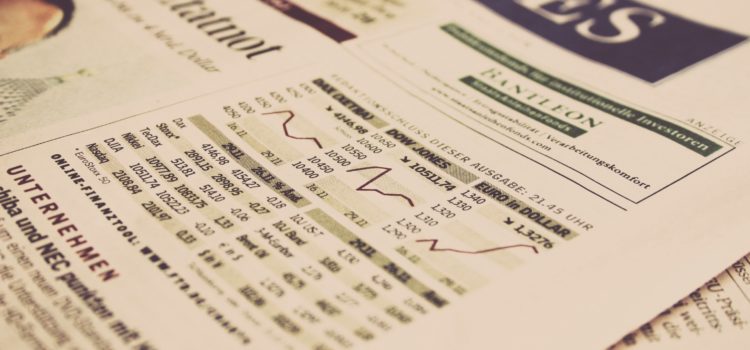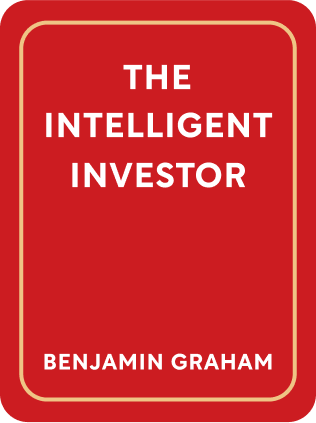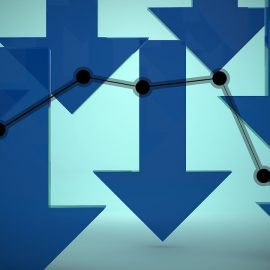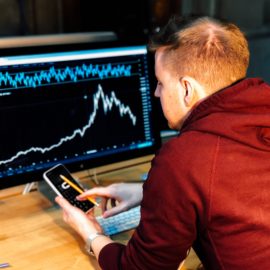

This article is an excerpt from the Shortform book guide to "The Intelligent Investor" by Benjamin Graham. Shortform has the world's best summaries and analyses of books you should be reading.
Like this article? Sign up for a free trial here .
When is the best time to buy stocks? How do you know when it’s the right time to buy?
“When is the best time to buy stocks” is a question that investors and traders ask themselves frequently. In The Intelligent Investor, Benjamin Graham outlines his predictions in the stock market by year. Analyzing these predictions, and whether or not they worked, can help you identify the right time to buy stocks.
So, when is the best time to buy stocks? Keep reading for more information.
When Is The Best Time to Buy Stocks?
Is it a good time to buy stocks? This is a perennially difficult question to answer. Investment professionals, whose job is to figure this out, constantly get it wrong. So, when is the best time to buy stocks? And how do you know?
Public sentiment is even less reliable—when a large crash occurs, most people, having incurred large losses, declare stocks too risky; in reality, this is the time of greatest opportunity to buy. Conversely, when people expect growth to continue perpetually, they’re willing to buy at any price; this ebullience is inviting a steep crash to more reasonable levels.
In each edition of The Intelligent Investor, revised roughly every 5 years from 1949 to 1973, Graham gave an assessment of whether stocks were undervalued or overvalued, and thus whether investors should choose to invest or sit on the sidelines. In this chapter, he reflects on those predictions and the general method of evaluating the stock market. (Shortform note: For today’s readers, this is of course less relevant for its actual predictions and more to illustrate Graham’s thinking.)
Graham’s Predictions
In each edition of The Intelligent Investor, Graham assessed then-current market conditions and declared whether the market was cheap or expensive. We’ll discuss his reasoning and how his predictions matched reality when you ask the question “when is the best time to buy stocks?”(Shortform note: We’ve included stock charts of the Dow Jones Industrial Average up to each prediction time, to better show what was available to Graham at each point in writing.)
1948
Prediction: Stocks are not at too high a level.
- The ratio of stock price to the last 3 years of earnings is at 9.2x.
- The yield of stock dividend yield to bond yield is 2.1x.
Reality: From 1949 to 1953, the Dow gained 50%.
1953
Prediction: Stock prices are favorable, but prices have grown for longer than in most previous bull markets, and the price is historically high. Be cautious.
- P/E ratio is 10.2x.
- Dividend yield to bond yield is 1.8x.
Reality: The stock market grew 100% in the following five years. Graham admits they were too conservative in this edition. This is helpful when you ask “when is a good time to buy stocks?”
1959
Prediction: When is a good time to buy stocks? The market is at an all-time high, and investors’ enthusiasm and momentum is likely to carry it to even greater heights. We’re in dangerous territory. Don’t delude yourself into thinking there will never be a downturn, and buying stocks is always profitable.
- P/E ratio is 17.6x
- Dividend yield to bond yield is 0.8x.
Reality: These were mixed results. The market grew to 1961, then fell rapidly in 1962, but quickly recovered into 1963 and grew from then on.
1964
Prediction: Be cautious. It appears the market is no longer held to traditional methods of valuation. We can’t rule out either extreme, that prices will continue growing by 50% or will suddenly collapse by 50%. If in doubt, reduce stocks to 50% of your portfolio.
- P/E ratio is 20.7x.
- Dividend yield to bond yield is 0.7x
Reality: The market fell to a notably low in 1970, then spent 1972 relatively close to 1965 levels. Graham feels this was appropriately cautious, and worth considering when you ask yourself “when is the best time to buy stocks?”
1971
Prediction: Stocks are still overvalued. There will likely be a major setback in stock value, or a brief bull market followed by an even larger setback.
- P/E ratio is 18.1x. This is lower than the recent high of 20.7x in 1963.
- However, the dividend yield to bond yield ratio is a dismal 0.41x, down from 2.1x in 1948. The situation has inverted, so that bonds are a much better investment than stocks.
Reality: The stock market suffered a major drop in 1973-1974, down 37% from the peak. Here’s a chart showing what happened after his last assessment:
Takeaways
Now that we’ve covered multiple historical data points, what’s important to take away from this? And when is a good time to buy stocks?
1) Even experts like Graham have trouble picturing exactly what will happen in the future. At times Graham was too conservative in estimating how strongly stocks would grow; at others, he predicted a major setback that didn’t occur for quite some time. Beware of relying on so-called experts; make up your own mind through independent thinking.
2) Beware of relying too strongly on extrapolating from the past. Graham himself cautioned in 1953 that the market was at a historical high. The market grew by 100% in the following five years.
In commentary, Zweig notes that during the dotcom bubble, a slew of investment managers claimed this was an unprecedented new era of limitless growth, and they piled on each other with higher and higher price targets for the stock market. The stock market eventually fell over 30%, with some stocks losing over 99% of its value.
3) Practice contrarian thinking. If someone says stocks will always go up, ask, “why? If everyone buys stock according to this belief, then won’t stock prices be unreasonably high? And if companies can only earn finite amounts of profit, won’t the stock price at some point exceed a reasonable value for the company?”
In fact, Zweig suggests, the more enthusiastic investors are, the more likely a setback is to occur. And the more that stocks fall out of favor after a large shock, the more likely it’s a buying opportunity. So, when is the best time to buy stocks? There’s no clear rule, but history can help you decide.

———End of Preview———
Like what you just read? Read the rest of the world's best book summary and analysis of Benjamin Graham's "The Intelligent Investor" at Shortform .
Here's what you'll find in our full The Intelligent Investor summary :
- Key advice from what Warren Buffett considers the "best book about investing"
- The 2 major indicators you should use for evaluating stocks
- How you can use aggressive or defensive investing strategies






